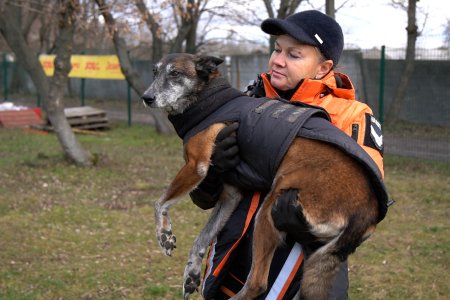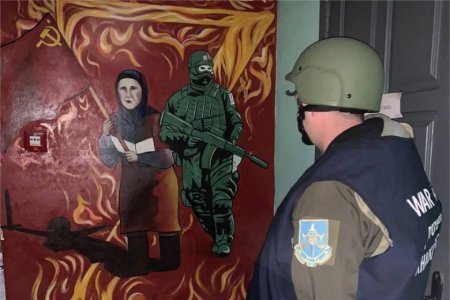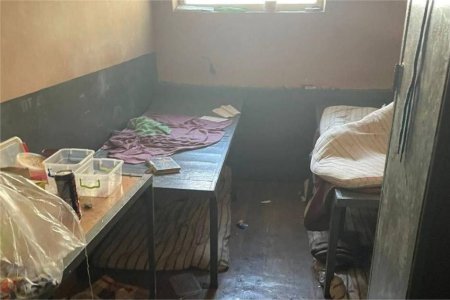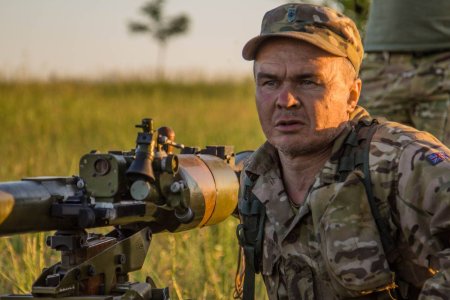We donate to them, and they send essentials to us. I donated 5 thousand UAH, and we sent 50 tourniquets.
— Sergey, will you get some markers, please?
— Fine.
— There is one in “Aurora”.
— How many pieces?
— As many as possible.
— Also, buy some chocolate!
Then it was the beginning. 25 or 26 February, I don’t remember exactly. My friend Said Ismahilov called me and offered to volunteer at the Kyiv TRO [Territorial Defence]. We first volunteered at TRO for several days and then decided to create our public organization. There were a lot of calls from our foreign friends who offered help. That is why we decided to open our headquarters to create a hub to assist the military, TRO, and civilians.

The founders of “Wings of Victory” are Said Ismahilov and me. The two of us founded this organization. At that time, Said was still the mufti of the Muslim spiritual government in Ukraine. He formally remained in office when the invasion began but immediately joined the Territorial Defense and, a little later, to one of the brigades of the Ukrainian Armed Forces. By then, he had left the post of mufti because all his strength and resources were spent on the war efforts.
Mach humanitarian aid came from the beginning, and we accepted everything offered. There were many requests. And there was a lot of help. We collected money and received support from abroad, such as bulletproof vests, uniforms, medicines — there were many things. It was just that back then, we were doing everything: medicine, food products, and some kind of medical consumables. And now we have switched to tactical medicine assistance.
We have many Muslim acquaintances, including fighting Muslims. Said is a military chaplain; in 2015 or 2016, he began traveling to the ATO [Anti-terrorist Operation] with other Muslim chaplains.
He founded this chaplaincy service. He has a lot of Crimean Tatar acquaintances, people of different nationalities who are Muslims and fighting in the Armed Forces of Ukraine—for example, volunteer battalions, such as the Crimea and Sheikh Mansur battalions. There are many Muslims who are scattered among different brigades of the Ukrainian Armed Forces. Sometimes, one or two Muslims are in one group of forty people. We don’t even know many because so many people accept Islam. From the beginning, when we created this organization, we mostly helped Muslims.
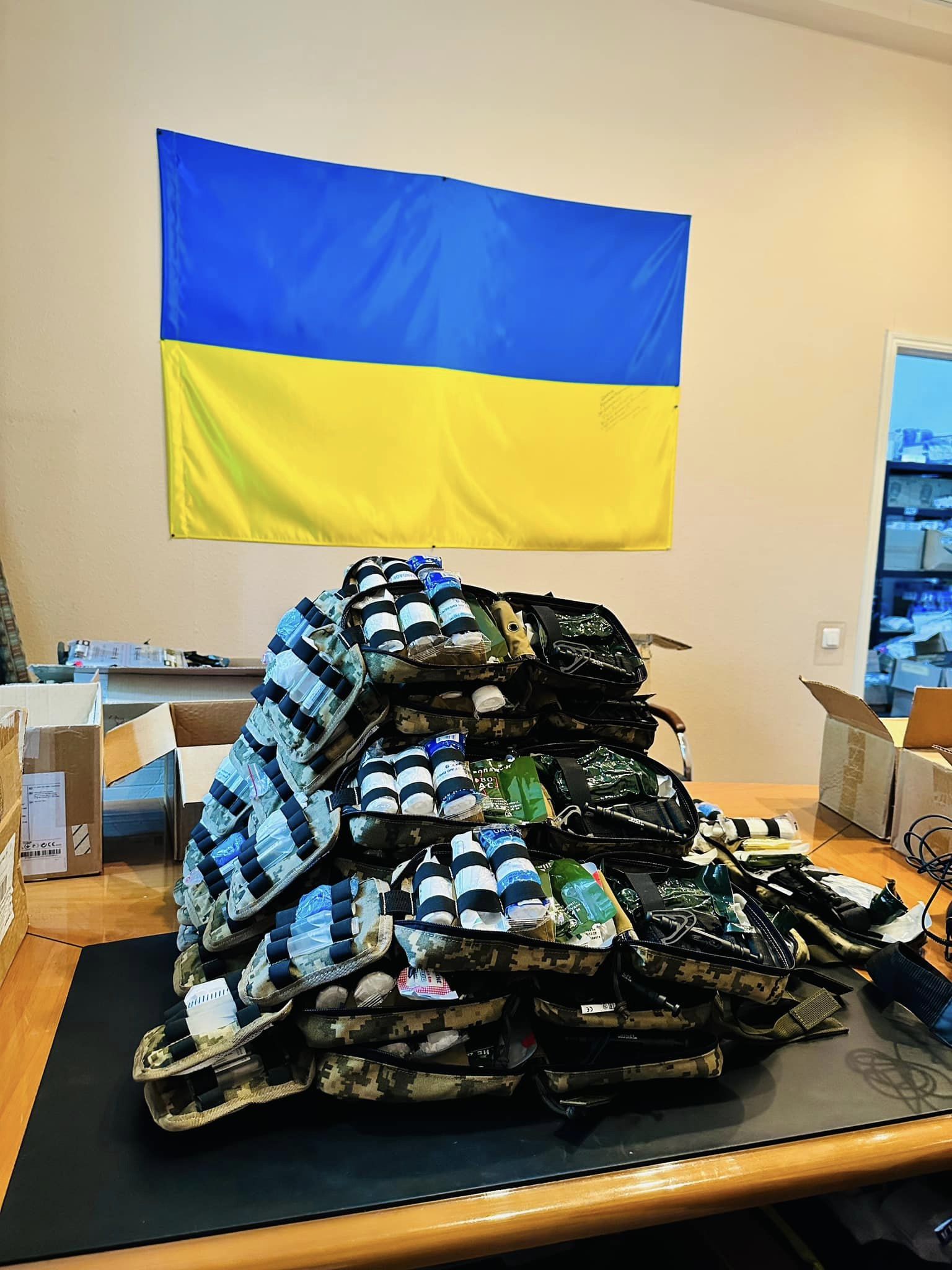
Volunteers don’t find us; we find them ourselves.
Do you grab them on the street? A man is coming, and you catch him?
In fact, all volunteers are our friends. These are friends of volunteers with whom we have been working for a year. Therefore, I think we have a very cool, exceptional team. We have mostly volunteer scientists. These are astrophysicists. As you know, there is one astrophysicist per million people. That’s why we joke that at our headquarters, the concentration of astrophysicists has simply exceeded all essential indicators — definitely surpassed it.
Your volunteers traveled, in particular, to the liberated Kherson Region last year in the fall. Can you tell us about this? Was it some kind of humanitarian aid or military assistance?
We went to the Kherson Region not only in the fall because the Kherson Region is large, and when Kherson was liberated, we only sent help there with our familiar volunteers. We are friends with several volunteer organizations: when someone comes and asks for some help, we, of course, help with what we have. But we have been aiding the Kherson Region since May last year. These are Novovorontsovka and Osokorivka, located on the border of the Dnipro and Kherson Regions. It is on the shore of the Kakhovka reservoir. By that time, it was the front line. And we transferred humanitarian aid to people there. Then, when the front line was shifted to the other side of the Dnipro we could go there ourselves and bring humanitarian aid. These were mainly Osokorivka, Novovorontsovka, Dudchany.
Food is one of the most critical issues because Muslims must only consume halal food. This mainly applies to meat. And so we help them with this as best we can. We make stewed porridge with meat and give it to the Muslims at the front. In terms of routine, no one ever complained or said there were any discrimination issues. In general, a fighting Muslim brings his life to his religious rhythm and various rituals. But, on the other hand, during military operations, we have a moment of weakening: a person at the front has the right to weaken some religious rituals, mainly regarding fasting or prayer. Therefore, all this can be practiced without any prejudice.
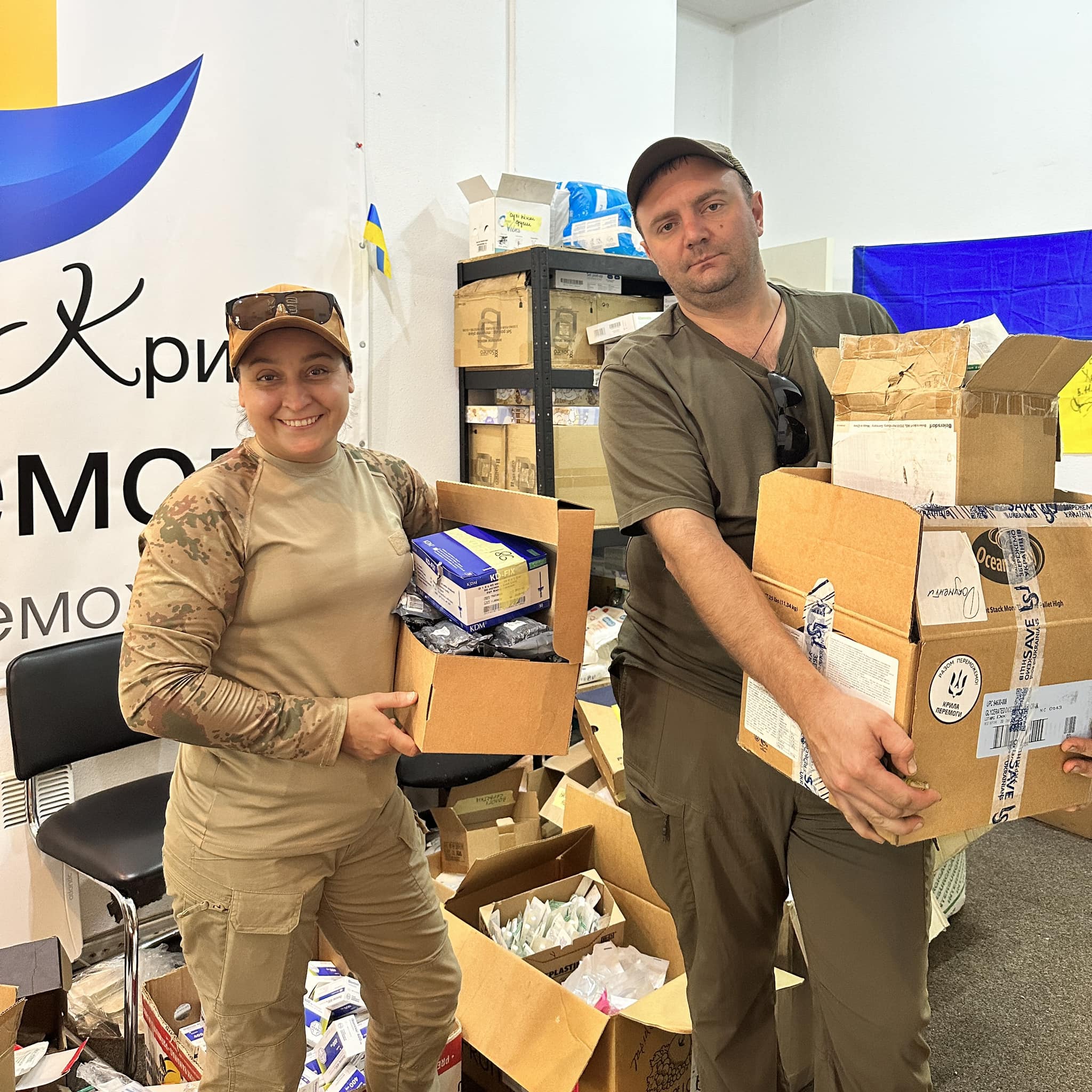
First of all, there is also a question of support from the state. There are low-quality tourniquets left in warehouses that need to go somewhere. They can’t just write them off as substandard. I don’t know if there is a procedure for writing off low-quality tourniquets; it seems there is not. Because this is state property, and someone must be responsible for it. And if we talk about normal tourniquets, there simply aren’t enough. However, the command reports that all tourniquets (75%) are high quality. But this is not the case since we see how the military approaches us and complains that most of the tourniquets are Chinese fakes.
Are such appeals still relevant today?
They are still relevant. Therefore, we buy normal tourniquets, make kits, and donate these first aid kits directly to the military.
The truth is, I have never heard of Islamophobia or intolerance towards Muslims. I know that several women serve in the Armed Forces of Ukraine; they are Muslims, and they are both military personnel and doctors.
Plus, we know that in many divisions, there are Muslims, Christians, and people who do not adhere to any religion.
There are even pagans, but we have never heard of any problems with the fact that representatives of different faiths are in the same group.
Do you have any professional dream that in a year, your organization will have 500 volunteers, or you will be able to collect 500 first aid kits per month? Is there something like that? Have you thought about this?
Yes! I’ll tell you what it is. It is the end of the war and the closure of the fund. This is my professional dream — ending the war and closing the fund.
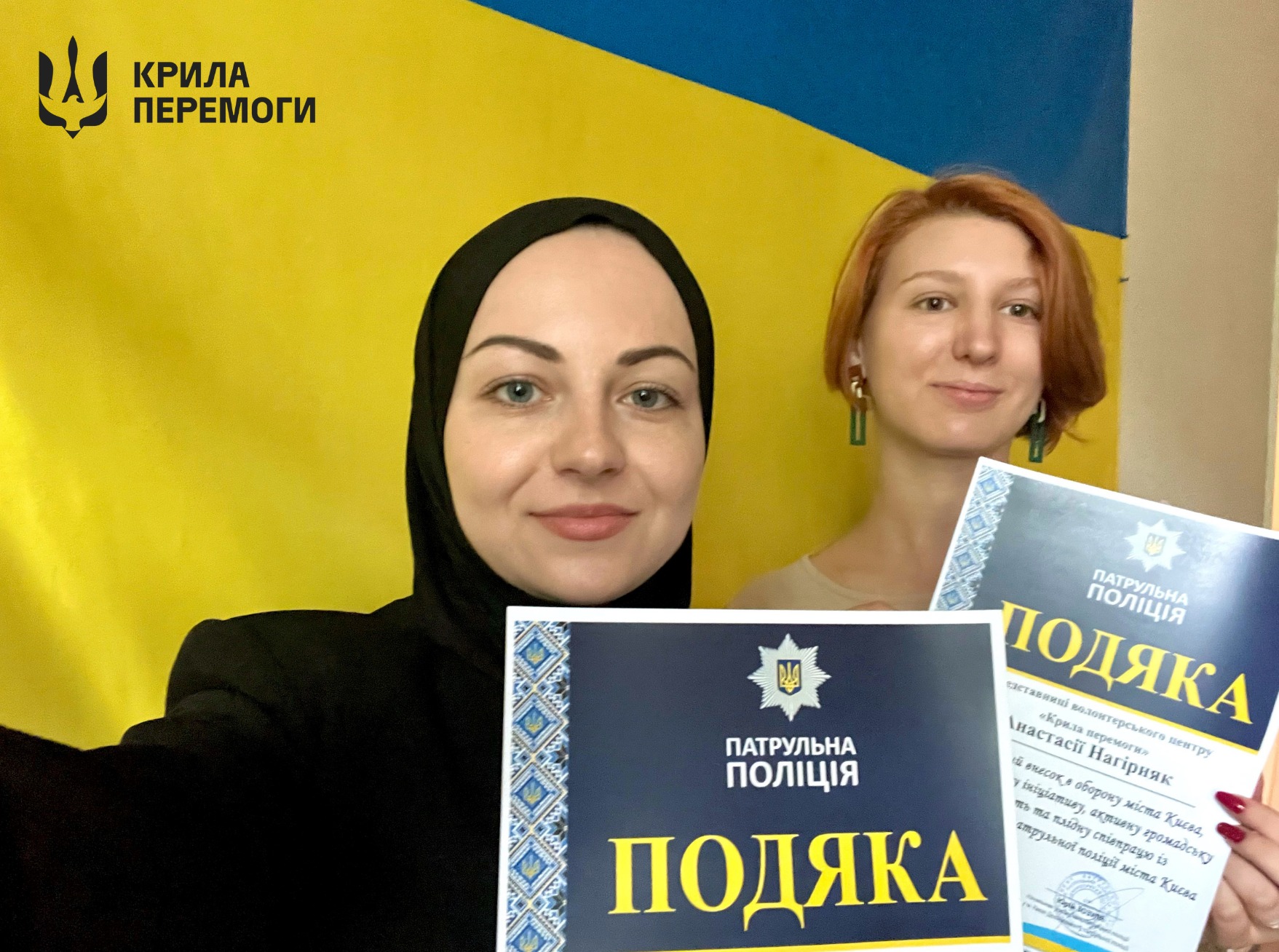
So that you are not needed?
Yes, so that we are not needed. I talked to my colleague about this today. When the war began, he was forced to leave with his family to another country. And now, he is engaged in standardizing and implementing management systems in public organizations and charitable foundations. I sometimes consult with him, and he asks how we work. He tells me how other funds work. This is an exciting experience of comparison.
And he also asked me today: “How do you manage everything? How do you manage work and volunteering? When the war is over, you most likely will not be able to continue working with large international foundations because many foundations pay attention to whether you helped the army. When the war is over, many foundations will refuse to provide grants. Because you helped the army.” And I say: “We don’t want that.” We want to complete our project and activities when the war ends. This is what I dream about. What our other volunteers dream about. Do your best and complete the project.
